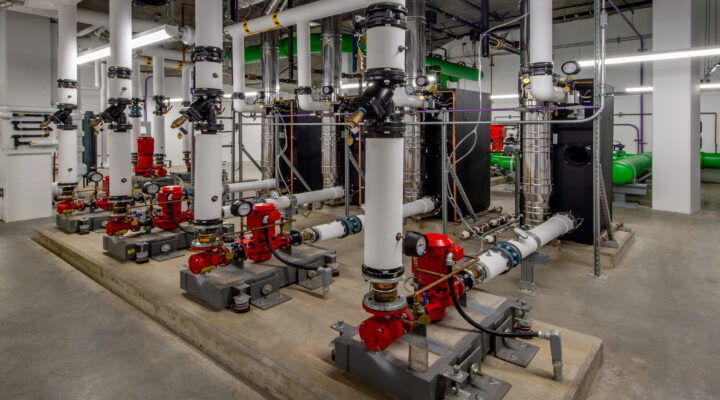A Q&A with Matt Derner, Senior Manager of Training and Education at the Hydraulic Institute, about the operational reliability of pump systems and why its smart to invest in the industry
What’s your background?
I bring 20 years of experience in global sales of pumps, drives, and various rotating equipment with a focus on energy efficiency and total cost of ownership.
What are smart pumps?
In general, smart pumps include a variable frequency drive (VFD) as well as onboard intelligence about the pump’s performance as a function of speed. This allows correlation of the VFD output frequency and power to flow rate and pressure. The operator can vary operation in an intelligent way to meet the system demand efficiently. Smart pumps can eliminate the need for external sensors, which can reduce installation costs.
Why are smart pumps important?
This sort of operational reliability allows water to move from A to B without extra waste. Whether you are concerned about energy waste or water waste, a system that enables you to control speed and flow for your desired output is the more reliable and cost-efficient system.
Say you’re in a high-rise building on the 40th floor, wondering, “How does my showerhead have the same water pressure that they have down on the 1st floor?” It’s because pump systems—often using a skid of several smart pumps—make sure the water pressure is the same on the 40th floor as it is on the 1st.

Who benefits from learning about efficient and reliable pump systems?
Anyone who touches pumps. This could be students in a STEM program, mechanical engineers, maintenance operators, or commercial building managers. Everyone will benefit from these more efficient systems. When the Hydraulic Institute is developing education and training strategies, we first think about the people on the ground.
Pumps are everywhere. Sometimes they are hidden behind walls or underground unseen. But the cool thing about this industry is that it’s very sustainable – Pumps aren’t going anywhere. We all need water.
What new trends do you see emerging in the field?
Right now, the industry is headed towards using more connected equipment. Smart pumps enable easy connectivity and data gathering. This equipment also optimizes based on the data collected, leading to increased growth of AI and learning models. It’s likely that the effective leveraging of this connected data will increase. It’s important for individuals to stay informed and educated as the industry and workforce rapidly evolve.
What challenges do you see with implementing pump technology?
I see two major challenges with the adoption of smart pump technology. First there is an upfront cost associated with VFD and a specific characterization of pump performance. In reality, the buying decision should be based on the total lifecycle cost rather than the initial upfront cost.
In fact, if you’re considering a smart pump with integrated VFD and sensorless control, installation costs can be reduced by limiting the need for external instrumentation as well as wiring. To help pump specifiers understand these benefits, the Hydraulic Institute created tools like the Pump Savings Calculator. It helps users figure out the difference in lifecycle costs when buying and installing efficient pumping systems versus ones with a lower Energy Rating. This tool will guide you through the steps to calculate both site-specific and general energy savings.
The second challenge I see is in workforce development. it’s crucial to get these folks educated and trained so they can contribute with a level of knowledge that will help the industry. High-quality education is also the way to retain people moving forward, since it’s an evolving industry with emerging technology like I mentioned before.
It’s why we focus on education from multiple angles. We build curriculum for 2- or 4-year schools, and we offer a number of training offerings for different levels, like our new Pump System Certification. By validating baseline knowledge for professionals who work with pump systems every day, it gives employers and employees confidence in the skills being brought to the table, while also encouraging continued growth in the field.
What advice would you give someone in the industry right now?
Learn more about a holistic approach to a pump system rather than just a pump. Whether you are an engineer or an operator, there are ways to help you drive efficiency, both energy efficiency and operational reliability. By considering a smart pump system, you’ll be able to reduce installation costs and total lifecycle cost.
Seeing the real world impact our pump systems trainings have on the people and organizations involved is what it’s all about. When someone earns a certification or completes a course and tells us it helped them get a promotion, gave them confidence in their role, or brought value to the field – that’s pretty fulfilling.
